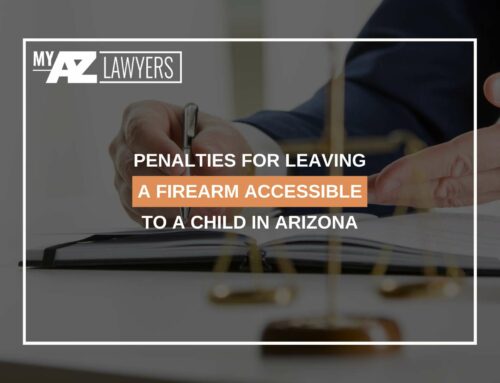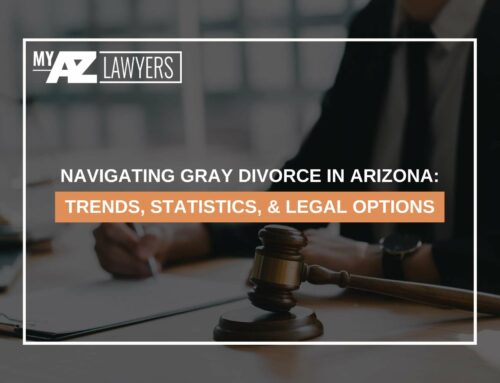Table Of Contents
Divorcing an Abusive Spouse In Arizona
What Are Your Legal Options When Divorcing An Abuser?
For some relationship issues, conversations and maybe couples’ counseling can help the spouses reach resolution. This probably isn’t the case if one or both spouses are abusive. Getting a divorce is one of the hardest things you can do, and it will be even harder with an abuser involved. An abuser may also use a divorce to try to gain control over marital property, and children if you have them. There may be extra steps you should take during a divorce to protect yourself. Especially if your spouse retains a divorce attorney, you should consider seeking a zealous legal advocate to ensure a fair outcome for your divorce. Our Arizona divorce team offers quality legal representation with rates and payment plans our competitors can’t beat. To schedule your free consultation, click here or call 480-470-1504.

What Constitutes Domestic Violence in Arizona?
There are several acts that are considered domestic violence in Arizona, depending on the abuser’s relationship with the victim. Domestic violence is defined in detail by A.R.S. § 13-3601. It lists relationships that qualify for domestic violence as romantic partners or exes, having a child in common, being housemates, or being a relative through blood or law. Once that relationship has been established, the acts that constitute domestic violence include:
- Negligent homicide
- Manslaughter
- Second degree murder
- First degree murder
- Endangerment
- Threatening or intimidation
- Assault
- Aggravated Assault
- Custodial interference
- Unlawful imprisonment
- Kidnapping
- Sexual assault
- Unlawful disclosure of images depicting states of nudity or specific sexual activities
- Criminal trespass in the third degree
- Criminal trespass in the second degree
- Criminal trespass in the first degree
- Criminal damage
- Interfering with judicial proceedings
- Harassment
- Aggravated harassment
- Stalking
- Surreptitious photographing, videotaping, filming, or digitally recording or viewing
- Child or vulnerable adult abuse
Should I Get a Protective Order?
A protective order, also commonly referred to as a restraining order, is meant to keep one person from any type of contact with the other. A protective order may be necessary in a divorce in which domestic violence is involved. There are two types of protective orders in Arizona: an order of protection and an injunction against harassment. An injunction against harassment is used on someone with whom you don’t have an intimate relationship, so it wouldn’t be applicable here. It also requires two acts of domestic violence or harassment, whereas an Order of Protection only requires one. If you need a protective order against your spouse in a divorce, you will use an Order of Protection.
In your Order of Protection, you can request that the defendant not only avoid your home, but your workplace, school, and anywhere else you frequent. You can also request the court protect any minor children you may have from the defendant. Your protective order will probably restrict the defendant from contacting you in any other way, such as by telephone or email. That means that it’s not only illegal for the defendant to show up at your home or work. Even a text message could get them in trouble with the law when a valid protective order is in place.
A family lawyer can help you with every aspect of divorcing an abusive spouse, including obtaining (and maintaining) protective orders. To schedule your free consultation with one of our compassionate and experienced family law attorneys, call 480-470-1504 today.
Different Types of Emotional Abuse
Just because your spouse doesn’t get physical with you doesn’t mean that they aren’t abusive. Emotional abuse is just as real as physical abuse but leaves a different type of scar. Learning different types of emotional abuse may help you identify them in your own relationship. This can either be a point for you and your spouse to work on or could amount to irreconcilable differences.
Blame
You might find yourself accepting fault for most of your marriage’s issues. Whether it’s just your nature, your spouse’s stubbornness, or some combination of the two, this type of imbalance can taint a relationship beyond repair. When one spouse is taking all the blame in a relationship, there’s a chance it might be abusive.
Gaslighting
Despite being based on the name of a movie from the 1940’s, this term has only recently become commonly known. Gaslighting involves lying or deceiving someone to make them question their own reality. An example of this could be if a husband promised to take out the trash, and instead watched television until going to bed. The next morning, when his wife confronts him, he insists he never promised to take out the trash. In fact, the wife told him she would take out the trash as a thank you for all his hard work! The wife apologizes, is confused, and the trash’s stink lingers in the kitchen long after she takes it outside. Her husband has used gaslighting on her.
Isolation
This is a classic technique utilized by abusers. When someone is isolated from friends and family, they may feel like their reasonable requests in a relationship are actually unreasonable demands. Isolation makes the victim like they have nowhere to go and no one to turn to if they leave their spouse. Abusers may effectuate isolation by making their spouse feel guilty for spending time with others. They may also always have sudden emergencies pop up whenever their spouse has plans with someone besides them.
Control
In general, you shouldn’t need “permission” from your spouse to do whatever you want to do about your daily life. Sure, you should probably talk to your spouse before going out and buying a new car or opening a joint credit card, but some spouses try to make their partners feel like talking to other people and going out is a privilege versus a right.
Verbal Abuse
As a rule of thumb for marital disagreements, name-calling and insults are crossing a line. Your spouse’s verbal abuse could even be so pervasive that it’s part of your routine. It can destroy your self-esteem so much more than insults from a stranger or enemy. Verbal abuse is also frightening because you never know when it may escalate to physical abuse.
Things To Expect From an Abusive Spouse During a Divorce
It may be pessimistic, but there are some negative behaviors that are reasonable to expect during a divorce from an abusive spouse. If your spouse has committed domestic violence, you may be a part of the cycle of violence. There are three main parts to the cycle of violence: tension building, acute explosion, and honeymoon.
Tension building is when the abuser begins to get angry, and the victim may sense it and try to de escalate. The abuser may become irritated during this stage, and even verbally or physically violent. If the victim doesn’t seek outside help, they will usually try to placate the abuser during this phase.
After tension building comes an acute explosion. This is the most dangerous time for a victim in the cycle of domestic violence. An acute explosion often occurs when the victim’s spouse tells their abuser that they are leaving. The abuser may try anything, including physical violence, to keep their spouse from leaving. The victim may try to get away or be convinced to stay. Police may be called, either by the victim or by concerned neighbors and passerby.
After an acute explosion, the abuser will try to woo back the victim during the honeymoon phase. The abuser will most likely be full of apologies and empty promises that such violence will never happen again. The abuser may agree to go to counseling, and try to convince the victim to drop any criminal charges resulting from the domestic violence. If you want additional resources about breaking the cycle of domestic violence, contact the National Domestic Violence Hotline by calling 1-800-799-7233 or clicking here.
The Affordable Arizona Family Law Team That Will Get You Results
When divorcing an abusive spouse, it’s best to have a confident and assertive lawyer to make sure that you get your fair share. Otherwise, an abusive spouse will continue this bullying behavior throughout the marriage to steamroll the proceedings. Unfortunately, most family lawyers charge fees that are astronomically high, and out of reach for most Arizona families. At My AZ Lawyers, we believe everyone -not just the super-rich- deserves skillful divorce representation at a fair price. To learn more about our comprehensive legal services and to receive your affordable quote with payment plan options, call 480-470-1504 or click here and schedule your free consultation.
Arizona Offices:
Mesa Location:
1731 West Baseline Rd., Suite #100
Mesa, AZ 85202
Office: (480) 448-9800
Email: info@myazlawyers.com
Website: https://myazlawyers.com/
Phoenix Location:
343 West Roosevelt, Suite #100
Phoenix, AZ 85003
Office: (602) 609-7000
Glendale Location:
20325 N 51st Avenue Suite #134, Building 5
Glendale, AZ 85308
Office: (602) 509-0955
Tucson Location:
2 East Congress St., Suite #900-6A
Tucson, AZ 85701
Office: (520) 441-1450
Avondale Location:
12725 W. Indian School Rd., Ste E, #101
Avondale, AZ 85392
Office: (623) 469-6603














